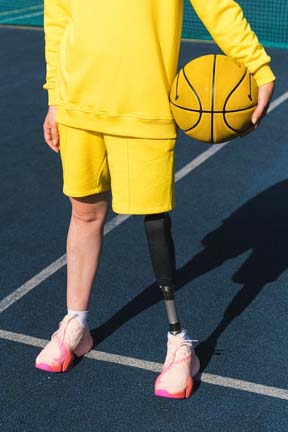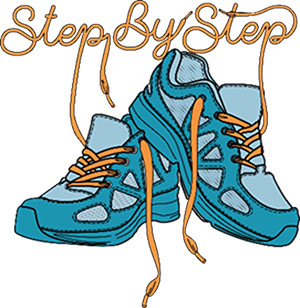StepByStep: Mobile Health and Social Media Physical Activity Intervention Among Adolescent and Young Adult Childhood Cancer Survivors
 Survivors of childhood cancer require interventions during adolescence and young adulthood to optimize their long-term health given their increased risk of chronic conditions typically found in much older adults, including cardiometabolic disease and reduced cardiopulmonary fitness, obesity and osteoporosis. Physical activity has been shown to reduce the risk and severity of many of these conditions and is associated with improved health-related quality of life. However, most survivors do not meet recommended physical activity levels and may be more sedentary than the general population. Adolescent and young adult (AYA) survivors of childhood cancer are understudied in physical activity interventions. Novel, developmentally-appropriate interventions are needed to improve the health trajectory of AYA survivors because interventions implemented among older adult cancer patients and children without cancer have had modest or no benefit in this growing population.
Survivors of childhood cancer require interventions during adolescence and young adulthood to optimize their long-term health given their increased risk of chronic conditions typically found in much older adults, including cardiometabolic disease and reduced cardiopulmonary fitness, obesity and osteoporosis. Physical activity has been shown to reduce the risk and severity of many of these conditions and is associated with improved health-related quality of life. However, most survivors do not meet recommended physical activity levels and may be more sedentary than the general population. Adolescent and young adult (AYA) survivors of childhood cancer are understudied in physical activity interventions. Novel, developmentally-appropriate interventions are needed to improve the health trajectory of AYA survivors because interventions implemented among older adult cancer patients and children without cancer have had modest or no benefit in this growing population.
Survivors of childhood cancer are largely inactive and have a lifelong elevated risk of cardiometabolic disease. Interventions to increase physical activity in AYA survivors are needed as they transition to greater independence. The randomized controlled trial of a motivational, wearable physical activity tracker integrated with individualized goal setting and an Instagram social media peer support group builds on promising preliminary data using methodology tailored to the preferences of AYA survivors. The intervention’s efficacy will be assessed with meaningful proximal outcomes associated with long-term morbidity: physical activity levels, biomarkers predictive of cardiometabolic health and health-related quality of life.  This intervention is intended to reduce disparities associated with health insurance status by virtue of its low cost and accessibility. If shown to be effective, this mHealth intervention is highly scalable given that the use of smartphones and social media are widespread, physical activity trackers are popular and affordable, goal setting can be automated and social media activities do not require specialized staff.
This intervention is intended to reduce disparities associated with health insurance status by virtue of its low cost and accessibility. If shown to be effective, this mHealth intervention is highly scalable given that the use of smartphones and social media are widespread, physical activity trackers are popular and affordable, goal setting can be automated and social media activities do not require specialized staff.
Participants in the Intervention Group receive goal setting from study staff at the Coordinating Center each week (by text, call, Instagram DM etc.) to set personalized step count goals using the Fitbit app based on step counts via the Fitbit. Participants in the Intervention Group are invited by study staff at the Coordinating Center to follow and post on a private, Instagram account created for this study. Study staff at the Coordinating Center will provide encouraging advice and messages about physical activity 2 to 3 times per week, announce badges/awards every week and moderate a forum to discuss physical activity and use of the Fitbit.
This work is done in collaboration with Georgetown Lombardi, who contributes to half of the research involvement for this study.